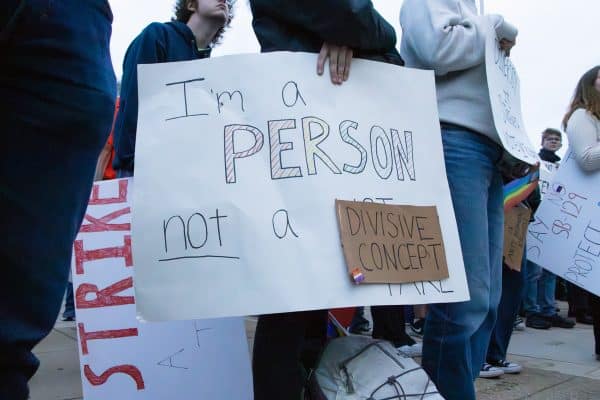Democratic economic policies are problematic
February 25, 2019
Imagine for a moment that it’s 2 a.m. Your night has drawn to a close, and you’re stumbling back to your apartment after a wild night at the “library,” when suddenly a man approaches you. He tells you that he has something you desperately want, and, even better, he will give it to you for free. Odds are if you’re still functioning correctly after all of those “books,” the first thought in your mind is, “This can’t really be free. There has to be some sort of catch.” You don’t trust the man, and most likely you shouldn’t. So why do we treat the federal government and our politicians differently when they offer us free college and health care?
With the massive influx of candidates into the Democratic Party primary for the 2020 presidential election, it seems as though now, more than ever, student voters are pushing increasingly for those candidates with grand promises of an America where higher education and some of the world’s highest quality health care are completely free of charge. In just the first 24 hours of his campaign, Bernie Sanders raised over $6 million. Not only is this figure astounding, it is absolutely terrifying. Seemingly everywhere Sanders travels, he promises free college, but at what cost?
For one, Sanders has proposed an increase in the estate tax that, for the highest bracket, is equal to 77 percent. If you’re unfamiliar with an estate tax, it is a tax on your children’s inheritance that they receive after your passing. Sanders wants to tax inheritances of over $3.5 million, but what right does the government have taking money it has already taxed once after your death? Yes, taxes are necessary for public infrastructure among a host of other things, but is a quarter of my hard-earned paycheck that I alone worked to receive really essential to the U.S. government, who will possibly mismanage those funds?
Now if Sanders would like to roll up his sleeves, grab an apron and start throwing pizzas at Little Italy with me, I might be willing to give him an eighth of my check, but as of yet he has not responded to my emails. Proponents of these “free” programs often cite the wealthy as an example of sources of funding, but what right do we have to their money? Were you around helping Elon Musk and others create PayPal? What about when Warren Buffett was aggressively buying companies based on his years of experience and research? Or when the other, more important Jimmy Buffett was recording such hits as “Margaritaville?” Odds are, you weren’t, and if you were, you should be reading this paper on your yacht, not at the Ferguson Center.
The point is, the idea that you are entitled to a fine arts degree simply because you exist and that the government can take someone’s money for you to fund your venture is ludicrous. Allowing the government to take the money of others means allowing them the power to do the same to you, should they so choose, which is akin to allowing the strange man who you met on the way home to sleep on your couch in exchange for the free item. Much like the federal government, your new friend probably won’t be leaving your house anytime soon, because free doesn’t really mean free.











